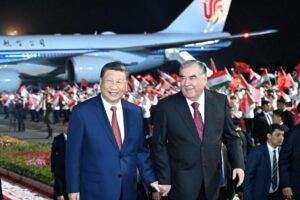After years of crisis and development challenges, Nicaragua was affected by multiple shocks in 2022. WFP’s operations were crucial to deliver life-saving assistance while continuing to foster resilience, promote rural transformation and tackle the structural causes of food insecurity.
The climatic crisis continued to be a driving force of food insecurity. Hurricane Julia impacted the Caribbean Coast in October, becoming the fourth major event to hit the country in 2020-2022. It affected Indigenous communities in highly vulnerable areas, where poverty rates reach 40 percent [1]. This was exacerbated by severe climate variability and the rising prices of food and agricultural inputs, affecting populations still recovering from the protracted effects of the pandemic and Hurricanes Eta and Iota. Therefore, WFP expanded its crisis response activities through shock-responsive social protection and strengthened food systems, increasing the number of assisted smallholder farmers organizations from 26 to 30. Overall, WFP reached 642,080 people (49 percent women) in 2022, 19 percent above planned by delivering emergency food assistance to those impacted by Hurricane Julia, complementing national efforts through the delivery of school meals to 182,000 children in Jinotega and the North Autonomous Region of the Caribbean Coast (RACCN, for its Spanish acronym) and a second meal to 120,000 children in the Dry Corridor during the lean season [2]. It also temporarily expanded its geographical coverage to the South Autonomous Region of the Caribbean Coast as part of its emergency response. Through its capacity-strengthening activities, WFP indirectly reached 2.6 million people. Furthermore, WFP enabled other United Nations agencies to assist some of the most remote communities by establishing a humanitarian hub in RACCN.
Populations affected by cumulative crises were also assisted through an innovative approach. In response to the rising prices of agricultural inputs, WFP promoted the local production of organic inputs, advancing green solutions and reducing the use of pesticides. Additionally, WFP established seed banks in ten Indigenous communities, coupled with a diploma course on disaster risk management, to mitigate the impact of shocks through livelihood recovery.
Additionally, WFP’s work focused on strengthening food systems through smallholder farmers’ production and their access to the market. In 2022, WFP tripled the number of farmer organizations with access to user-friendly climate information and training to interpret forecasts. Simultaneously, WFP piloted agricultural microinsurance, reaching 430 farmers and providing USD 7,649 in payouts. These were critical tools to mitigate the impact of shocks on food production while promoting agricultural investment. WFP also provided a top-up to the national macro insurance policy resulting in a payout after Hurricane Julia [3]. In doing so, WFP Nicaragua became the first country office in Latin America and the Caribbean to implement insurance at the macro and micro levels, adopting a two-level approach to transfer the risk of shocks on smallholder farmers and people exposed to hazards.
WFP also fostered farmers’ access to formal markets by sourcing 17 percent of food for its operation from smallholder farmers. Additionally, WFP enabled commercial relationships between Walmart and five farmers’ organizations to supply regional markets, an excellent opportunity for a long-term collaboration with one of the largest private sector stakeholders in the region. Overall, local procurement represented 76 percent of the food procured in 2022, boosting the local economy.
As in previous years, promoting gender equality and women’s empowerment remained a priority. WFP supported the Ministry of Women’s expansion from 33 to 50 municipalities, primarily in the Caribbean Coast where women and girls face greater gender-based violence [4]. In line with its principles of accountability to affected populations, WFP and the Ministry implemented activities to empower and encourage the inclusion of people with disabilities.
Finally, in line with Sustainable Development Goal 17 (Partnerships for the goals), WFP strengthened the capacities of national institutions to enhance social protection, disaster risk management and emergency preparedness and response. Also, WFP partnered with non-governmental organizations with strong presence in remote communities in the Caribbean Coast and Indigenous universities. All of these achievements were possible thanks to the support of trusted partners and donors, whose contributions enabled WFP to be adequately funded to reach results.
Source: Reliefweb
















